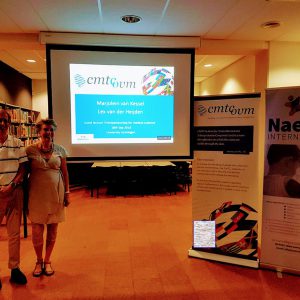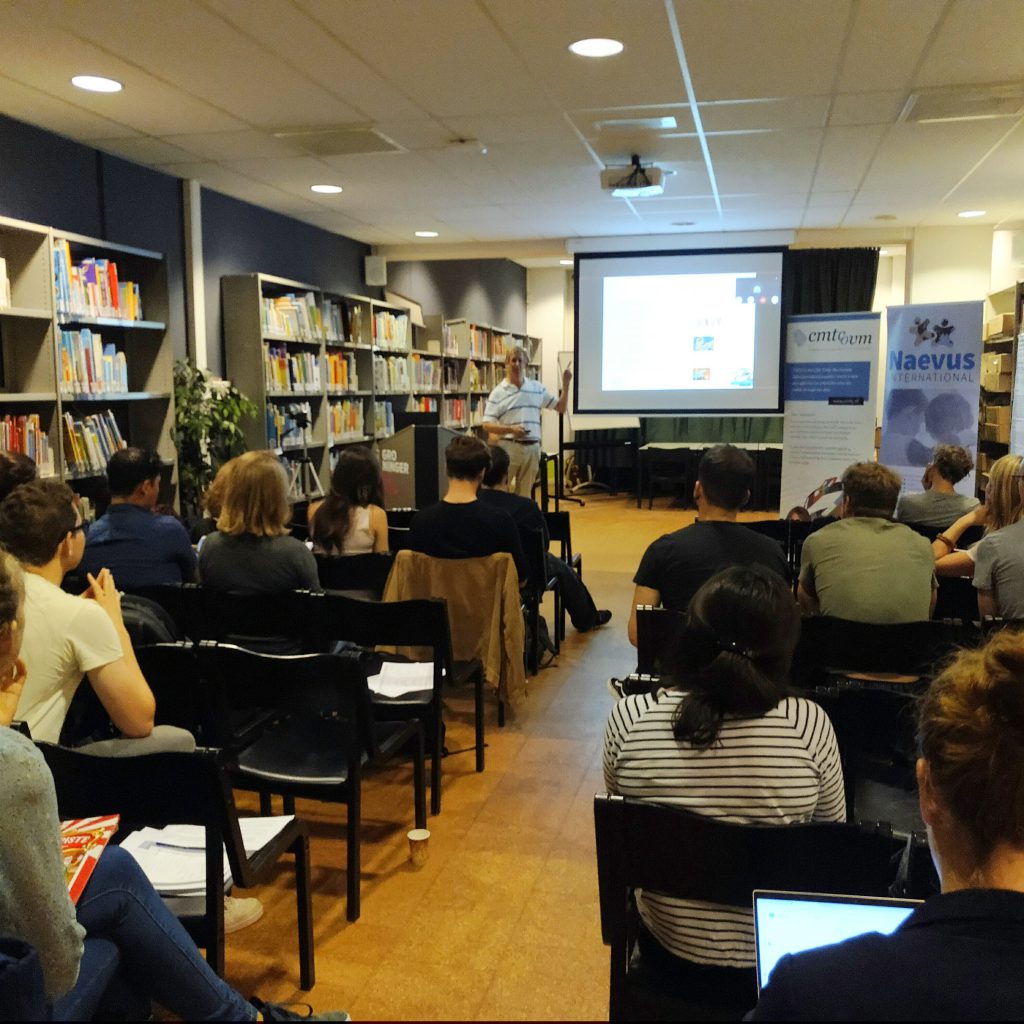 On 18 September 2018, Lex van der Heijden and Marjolein van Kessel (secretary skin patients the Netherlands and patient advocate Naevus International) held a guest lecture about ‘Entrepreneurship for medical sciences’.
On 18 September 2018, Lex van der Heijden and Marjolein van Kessel (secretary skin patients the Netherlands and patient advocate Naevus International) held a guest lecture about ‘Entrepreneurship for medical sciences’.
They talked about the non-profit organisation they established, what issues they faced and how they solved them.
Van Kessel and Van der Heijden had been invited by Prof. dr. Aard Groen to provide this guest lecture. Professor Groen teaches Entrepreneurship and Valorisation at the University of Groningen and the University of Twente. During a conference in Vienna, Van Kessel and Van der Heijden started talking to professor Groen about challenges in the world of rare diseases and how they deal with these, seen through the eyes of an entrepreneur.
The guest lecture was held in front of an audience of international students and was also broadcast to students in other countries. The students were to work on entrepreneurship in different environments.
Van Kessel and Van der Heijden talked about the non-profit organisation they established, what issues they faced and how they solved them. Establishing a non-profit organisation is actually a form of entrepreneurship.
After Van Kessel and Van der Heijden introduced themselves, they talked about the following subjects:
- Today’s patients are overwhelmed by all the medical information (on Google, for example), don’t know what choices they have, don’t know how modern health technologies could affect their health and are not involved in the development of healthcare.
Tomorrow’s patients are connected (self-monitoring through sensors, for example), well informed, involved in the decision making process and manage their own medical information. - One of the presentation’s goals was to raise awareness for living with a rare disease and to explain what advocacy looks like in practice.
- To paint a clearer picture, some numbers concerning rare diseases were shared (such as there are 7,000 rare diseases; rare diseases are chronic diseases; 75% of rare diseases happens in young children, of which 30% pass away before they turn five years old; on average, it takes 5-7 years before the correct diagnosis is provided and 40% receive an incorrect diagnosis more than once).
- Each organisation’s main activities were presented (awareness, support, research and advocacy).
- An overview of what entrepreneurs need in this context (passion, perseverance, networks creativity and energy).
- Challenges patient organisations for rare diseases face a lack of proper diagnosis, getting through to patients and their families, financial support and lack of knowledge.
